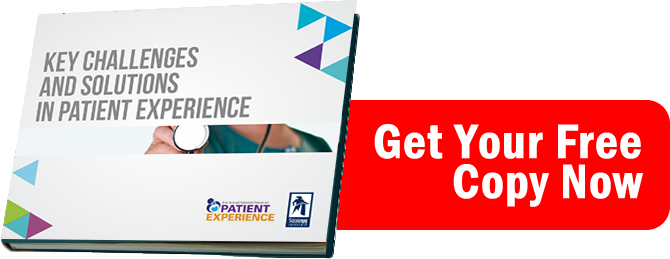Strategy Institute: Okay, so just to start, just give us an overview of what you do and the organizational work that you do.
Farah: My name is Farah Schwartz and I am manager of patient and family education at Toronto Rehab, University Health Network. The way that patient education and family education is connected to engagement is that patient education is a critical form of engagement, so patient education can be looked at as helping people learn, helping them self-manage, providing them information they need. In order to engage, they need to have education, they need to understand their healthcare, the healthcare system and one of the things we talk a lot about is health literacy, so the skills that people need to really navigate the healthcare system, to health information and to be engaged and to be able to have those skills. Otherwise we can’t really engage meaningfully in the system or with our providers. So, patient and family education and what I do and work on, I feel is truly critical to patient engagement.
Strategy Institute: That’s great, just to follow up, what do you think are really the three main challenges in patient experience in terms of moving forward today?
Farah: So, I think some of the key messages from the panel this morning where they talked about what they were doing with patient advisory councils, one of the key things was really, you have to be ready, and you have to be ready and able to engage people, if you bring people to disable them and you don’t do what you’re saying you’re going to do, that’s actually, it’s hard and there was a webinar that I saw that they talked about. Basically, a harmful thing is to engage people in that process and not act on it. But, on the flip-side, it really takes a lot of energy and it takes a lot of resource to truly engage people, so whether it’s having at least one dedicated person or being able to help empower people so that they can participate in a way and to help create that change, it takes time, it takes effort and a lot of organizations just aren’t in a place to invest in it to invest in it, or they’re not they don’t have the resources to invest in it. I think, across the country, a lot of people don’t necessarily share the vision and that in and of itself is a barrier with them, even those who do don’t necessarily, they’re not in a place to truly enact it in a way that, maybe a more consumer-driven system is, or that you know already patients on our systems are.
Strategy Institute: Alright, so in that sense where do you think the Toronto Rehab is in terms of their implementation for a patient experience model?
Farah: So, Toronto Rehab integrated with the University Health Network two years ago so there are some definite similarities and then some things that are different, so I’ll speak for Toronto Rehab not UHN. Toronto Rehab is a very engaging organization from a clinical perspective one of the things that’s different about rehab, there’s been a lot of talk about acute care, rehab is different because, even though in traditional medicine of course you want consent, and you want people to be engaged in their care and their management more and more people need to be because they’re dealing with chronic conditions. But you could give acute care to someone, you could treat somebody and they’re not necessarily engaged in their care. You can’t engage in rehab with someone if they’re not engaged . You can’t make someone do therapy, you can’t make someone get exercise and so engagement is critical from a clinical perspective. I think because of the overall commitment to understanding of that, that Toronto Rehab, as an organization really acts out a lot of patients’ ideas so some of the things we’re talking about follow-up calls after discharge, and just ongoing focus groups, things like that are in place at Toronto Rehab, and as well, each clinical program has a community advisory group or a patient and family council that advises and includes members of the community as well to talk about the continuum of care and engagement. So, any organization I think can continue to improve, but Toronto Rehab really does live a lot of the philosophies that are being talked about today.
Strategy Institute: That’s great to hear, and then lastly, what were you hoping to get out of the conference?
Farah: The networking and meeting other people who were doing this work, I think it’s, it’s great to get that and I’m also really excited to hear examples from across Canada because there’s such a diversity in how things are playing out in patient experience.
Be sure to check our next Patient Experience conference to ensure you meet patient experience professionals making a difference to Canadian Healthcare. You will also be networking with over 200 delegates and be totally inspired by one of the strongest panel of speakers in Canada.
For more Patient Experience and Healthcare news sign up to our email updates.
